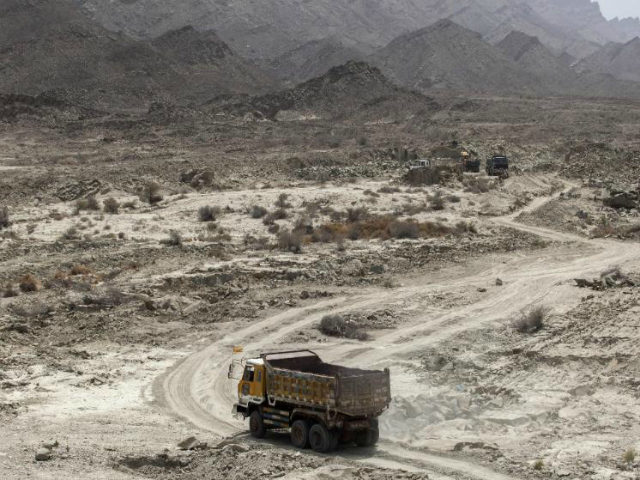China’s One Belt, One Road (OBOR) development projects within the borders of Pakistan will improve political stability in the Muslim country, the Chinese state-owned Global Times claimed in an editorial this week.
The Global Times op-ed comes as the Chinese-allied Pakistani armed forces reportedly loom large over the divisive July 25 Pakistani elections that have pitted candidates backed by Islamic hardliner organizations, including those with ties to jihadi groups, against establishment politicians supported by the country’s military.
Both the Beijing-allied military and China consider Islamic terrorists a threat, making it likely for both entities to be against any Islamic hardliner group seizing power.
This year’s elections in Pakistan are reportedly featuring Islamabad’s relationship with Beijing as a top agenda item.
On Wednesday, the state-controlled outlet acknowledged that Beijing argues its China-Pakistan Economic Corridor (CPEC), a component of the multi-billion dollar OBOR, also known as the Belt and Road Initiative (BRI), project will potentially improve security and political instability in Pakistan.
However, deteriorating security conditions in Pakistan ahead of the elections are expected to get worse, threatening Chinese projects and citizens in the Muslim country, Global Times reported in another editorial Sunday. Terrorist groups like the Pakistani Taliban and the Islamic State (ISIS/ISIL) are increasingly attacking candidates.
While China has long faced an Islamic terrorist threat from Pakistan, it continues to provide military assistance to Islamabad as the top weapons provider to the Pakistani military.
The Pakistani military has repeatedly denied ruling the Muslim nation for nearly half its history and playing a direct role in the elections. However, the Beijing-allied Pakistani military is expected to deploy more than 370,000 soldiers on polling day, a move deemed by the “gravely concerned” independent Human Rights Commission of Pakistan “as blatant, aggressive and unabashed attempts to manipulate” the elections, the Agence France-Presse (AFP) news agency reported Thursday.
On Wednesday, the Global Times claimed that China has “no intention to interfere” in Pakistan’s domestic affairs, namely the elections, adding:
Under the Belt and Road initiative, an increasing number of investors from China and other countries are coming to Pakistan for business opportunities, laying the basis for the country’s sustainable development.
Indeed, Pakistan is still perplexed by a fragile economy and turbulent politics. An overnight success is unrealistic in the country’s development, and it will take time for Pakistan to progress and gradually realize economic prosperity and political stability. China, with its Belt and Road initiative, is providing Pakistan with opportunities to develop.
AFP highlighted that the Pakistani military is not expected to take a back seat during the upcoming parliamentary elections, indicating:
Accusations of military interference, encroaching extremism and a series of deadly attacks have cast an alarming shadow over Pakistan’s hopes for a rare democratic transition of power in next week’s election.
Observers have slammed “blatant” attempts to manipulate the ballot, which will see the brother of a recently jailed three-time prime minister face off against a former World Cup-winning cricketer for leadership of the nuclear-armed nation, whose short history is peppered by coups and assassinations.
The influential Pakistani military is believed to favor former national cricket captain-turned-politician Imran Khan.
Some analysts have described the military’s alleged intimidation tactics in the elections as a “silent coup” involving kidnappings, attempting to censor media coverage of certain topics and parties ahead of the vote, AFP reported, adding, “There is a widespread belief that the generals prefer a weak civilian government who will not seek to rebalance the power between it and the security establishment.”
Khan, who has declared his desire to build an “Islamic welfare state,” is seen as the most likely to fit that mold, AFP pointed out.

COMMENTS
Please let us know if you're having issues with commenting.